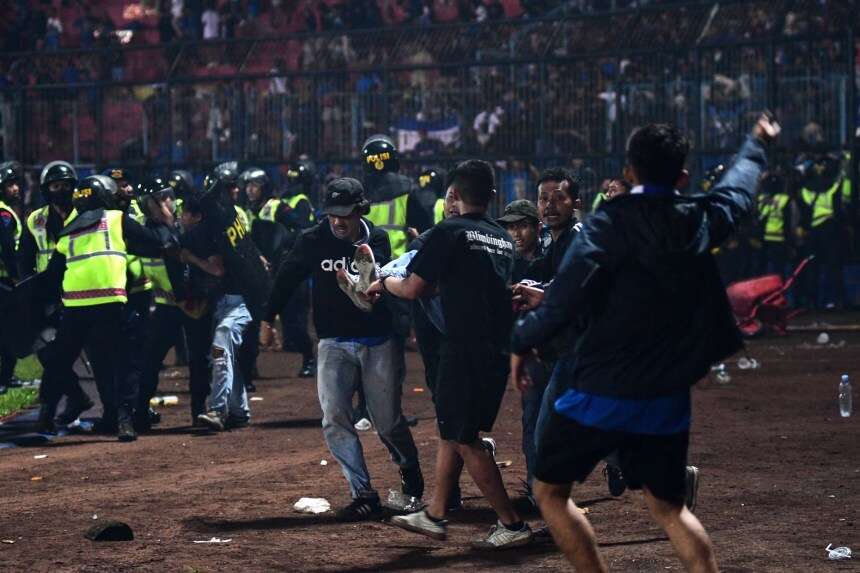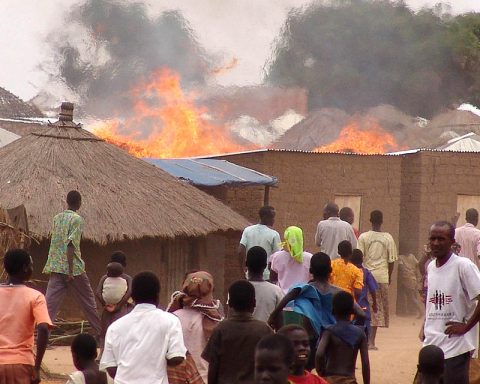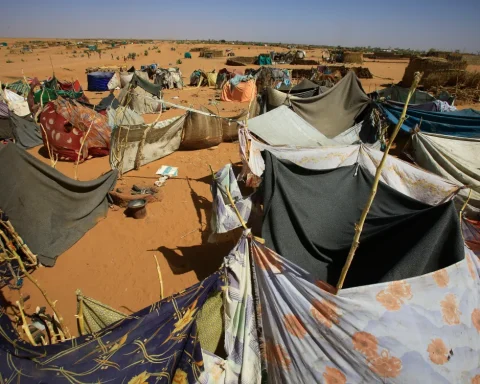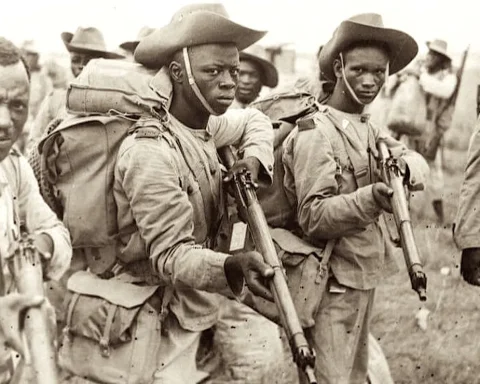In one of the deadliest sporting tragedies in history, a Stampede caused by police firing tear gas at rioting soccer supporters in Indonesia has killed at least 174 people.
The use of tear gas by the police caught everyone’s attention right away since FIFA, the governing body of soccer around the globe, forbids its use at soccer stadiums and referred to the incident as “a tragedy beyond description.”
The following violence after the game on Saturday night at a stadium in the city of Malang, in the province of East Java, several supporters suffocated while others were trampled in the rush.
Thousands of enraged fans threw bottles and other items at players and referees as host team Arema FC lost to visiting team Persebaya FC 3-2.
According to eyewitnesses, Arema supporters flocked to the field at Kanjuruhan Stadium and clamoured for management to explain why this match against Persebaya, the team’s archrival for 23 years, ended in defeat.
Tear gas was fired by riot police in response, especially toward the stadium’s stands, which terrified the masses of spectators.
Officials said that at least 34 individuals perished at the stadium, including two officers. According to some sources, children were also killed.
“I deeply regret this tragedy and I hope this is the last soccer tragedy in this country,” Indonesian President Joko Widodo said in a televised speech Sunday.
Widodo commissioned a review of the security protocols.
“We have already done a preventive action before finally firing the tear gas as (fans) began to attack the police, acting anarchically and burning vehicles,” East Java police chief Nico Afinta said in a news gathering early Sunday.
More than 300 individuals were taken urgently to hospitals, but several passed away there and while receiving care, according to Afinta.
In an interview with local television station Kompas on Sunday, East Java’s vice governor Emil Dardak stated that more than 100 injured persons were getting intensive care in eight hospitals, with 11 of them in severe condition.
Police and rescuers were seen transporting the dead and injured to ambulances in television broadcasts.
At Saiful Anwar General Hospital in Malang, grieving loved ones awaited news about their deaths. Others attempted to identify the bodies that were lying in a morgue.
In a statement, FIFA President Gianni Infantino expressed condolences on behalf of the global football community, saying “the football world is in a state of shock.” The statement did not mention the use of tear gas.
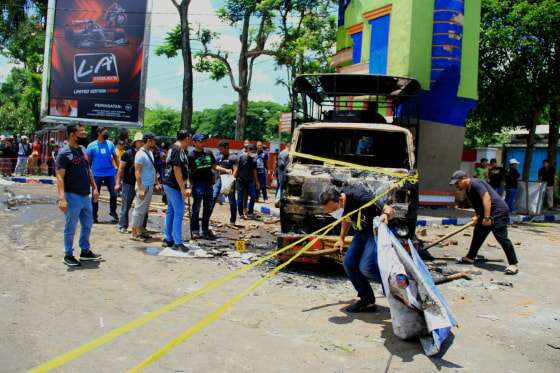
Police conduct an inquiry next to a burned-out car outside the Indonesian soccer association’s (PSSI) decision to permanently suspend Liga 1 and prohibit Arema from hosting games for the duration of the current campaign.
Twenty-four teams will compete in the 2023 FIFA Under-20 World Cup, which will be held in Indonesia. The nation automatically qualifies for the cup because it is the host.
“Unfortunately, this incident has certainly injured our soccer image,” said Youth and Sports Minister Zainudin Amali.
Despite Indonesia’s lack of recognition in the sport on the world stage, hooliganism is rampant in the soccer-obsessed nation, where fervour frequently results in bloodshed, as in the case of a Persija Jakarta supporter who was slain by a mob of fervent Persib Bandung supporters in 2018.
The game on Saturday drew about 42,000 spectators, all of whom were Arema supporters because the organizer forbade Persebaya supporters from entering the stadium to prevent fights, according to Ferli Hidayat, the police commissioner of Malang.
The 1996 World Cup qualifier between Guatemala and Costa Rica in Guatemala City, when over 80 people perished and over 100 more were injured, is considered one of the worst crowd catastrophes in history, and Saturday’s game is already on that list. In April 2001, a soccer match at Ellis Park in Johannesburg, South Africa, results in the deaths of more than 40 spectators.

